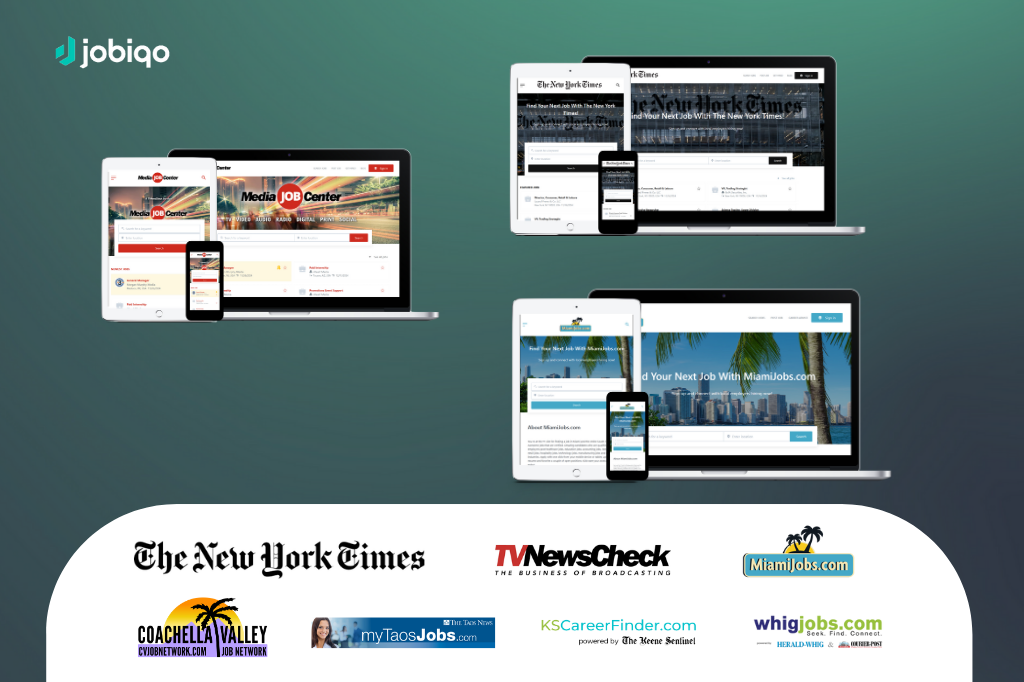Responsibilities & Opportunities

Responsibilities & Opportunities
How the coronavirus outbreak is challenging the online job market
By Martin Lenz, Richard Essex and Simon Devitt
In times of global crisis, it is important to act quickly with counter-cyclical policies. When it comes to the Covid-19 pandemic, digital marketplaces such as online job boards are able to do this better than many. Why? First, because they do not require any physical contact. Second, because amid the current chaos, customers and users are extremely grateful for the direction and guidance online job boards can provide.
The challenge currently facing the international community is one none of us expected to see during our lifetime. What was hardly imaginable just a few days ago is fast becoming a reality, with companies shutting down, revenues disappearing overnight, employees being made redundant for indefinite periods, and existences lying in ruins. And there are still no clear answers as to how long this will last. Income losses for sole proprietors and small enterprises in the service sectors have been particularly drastic – in some cases 100 percent. The same goes for companies that trade in or produce goods that are not considered essential to life. But other sectors are now seeing an unprecedented surge in demand, especially in areas such as healthcare, food trade, supply chain, logistics and security. Many of the jobs being created by this surge would previously have been labelled “low career opportunities” and “low earnings”. Now they are viewed as absolutely essential, with temporary workers being recruited urgently and in large numbers.
Change and restart: Planning life after Covid-19
Just as global and local labour markets are in a state of complete upheaval, so hiring strategies are changing rapidly and irrevocably. Two months ago, online recruiting was just the simplest means to an end. Now suddenly the online job market is the only game in town. There is no other cost-effective way to search for personnel or find a new job responsibly. At the same time, a great opportunity has arisen for job board owners to contribute their existing expertise and to connect “unexpected job seekers” with “sudden job advertisers”. We have already seen new online initiatives being formed. Established players are building new job portals at lightning speed and with a lot of support from the public. There are also lots of new opportunities for collaboration, particularly if job board owners with sector audiences who have become over-supplied at short notice can partner with owners of job boards in sectors experiencing acute shortages. For example, could the beleaguered hospitality sector provide the workers we so desperately need to pick fruit and vegetables to feed the nation? The value job boards can add is not limited to filling vacancies. They also have an important role to play in disseminating job-related information – a critical service at the current time. Here in the UK, for example, the Government has promised to help employers retain staff. Both companies and individual are now crying out for reliable information on the subject, as new models for short-time working are developed and affected employees could potentially receive full or near-full pay for staying at home.
Job boards as the basis for the new economy
Now is the ideal opportunity for job boards to position themselves as reliable partners for employers and employees. Not only will this lay the foundations for further partnerships. It also represents a counter-cyclical investment by job board operators. By making job alerts even more accurate, for example, or by providing-learning, or by continuously shaping the editorial environment with a special content initiative, online recruiters can create long-term customer and user loyalty. This will also hopefully be the moment when video is finally established as the recruiting channel of the future. When if not now will companies and candidates realise the huge unexplored potential of putting recruiting videos online and conducting job interviews via video chat? Value of job boards in the time of Covid-19 Right now, the economic and social values of job boards can be summarised as follows:
- to create added value by balancing new demand and supply, currently strong in areas such as agriculture, logistics and medical professions
- to make people who are currently losing their jobs aware of new opportunities for their personal future, and to provide support to employers who are having to navigate rough seas.
- to establish services such as editorial content, further education or knowledge transfer to guarantee the flow of information on new funding opportunities and state support (unemployment benefits), and to equip workers with additional skills.
- integrate new digital services such as video application or virtual events to establish innovative channels of interaction without risk of contagion.
- to take away people’s fears and to give orientation and perspectives.
Digital marketplaces enable us to use and expand our social and economic networks without the risk of contagion. In particular, the possibility of offering new communication channels such as video applications helps the whole system in these challenging times.
Martin Lenz is Jobiqo's CEO since 2017. Managing Director Richard Essex, based in London, joined the company in 2019. Simon Devitt has played a leading role in the UK job board market and works as consultant with Jobiqo. He can be contacted via e-mail.
Photo: Matt Noble/Unsplash.com




